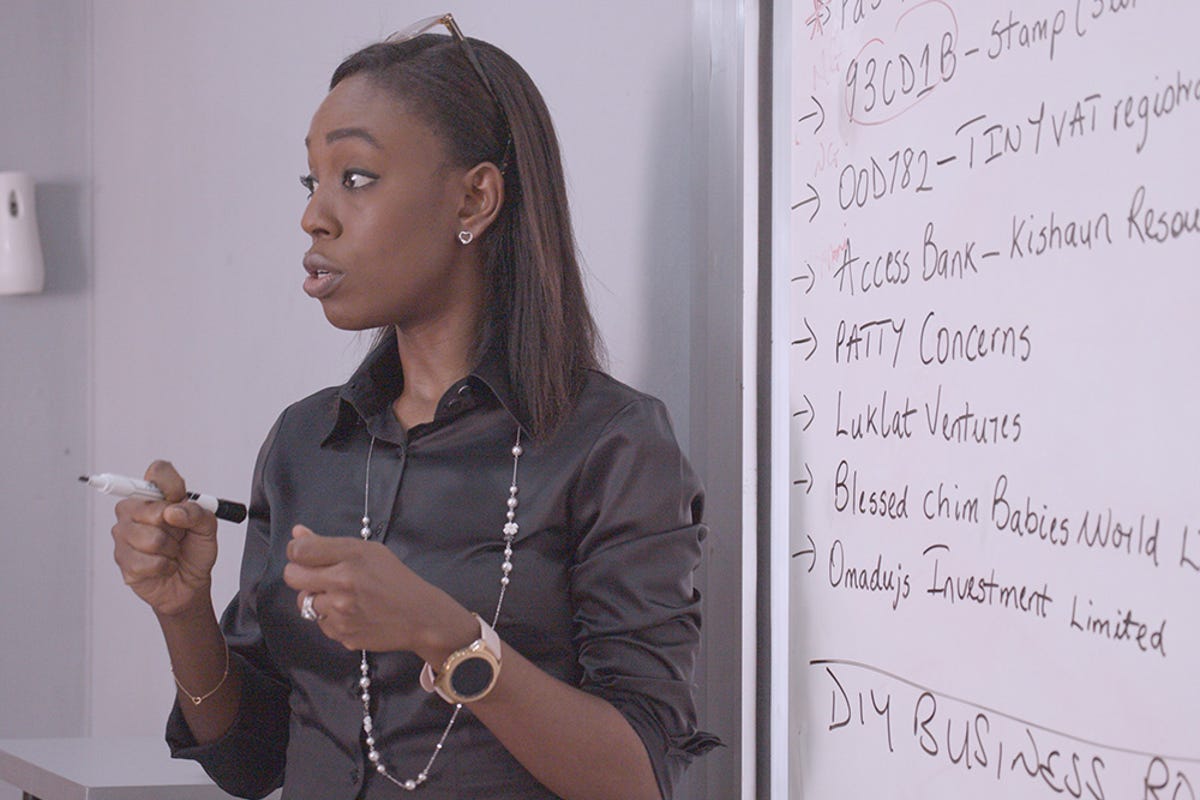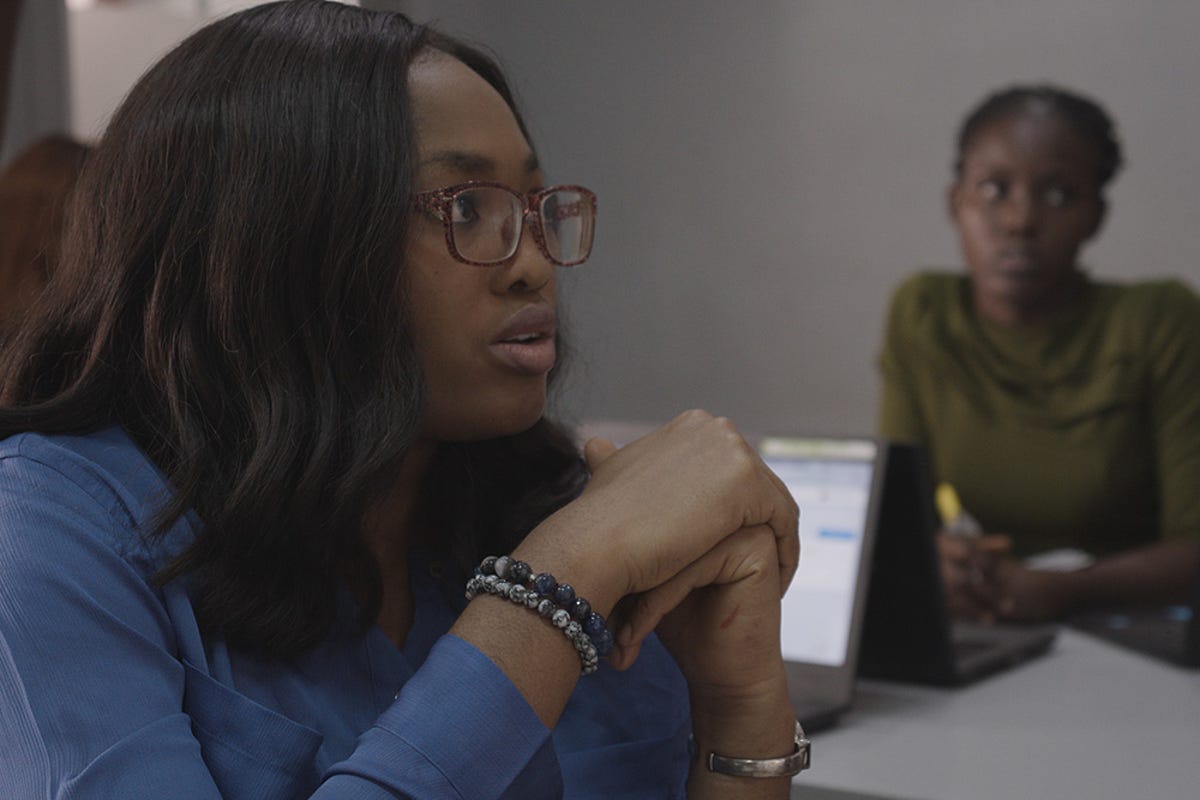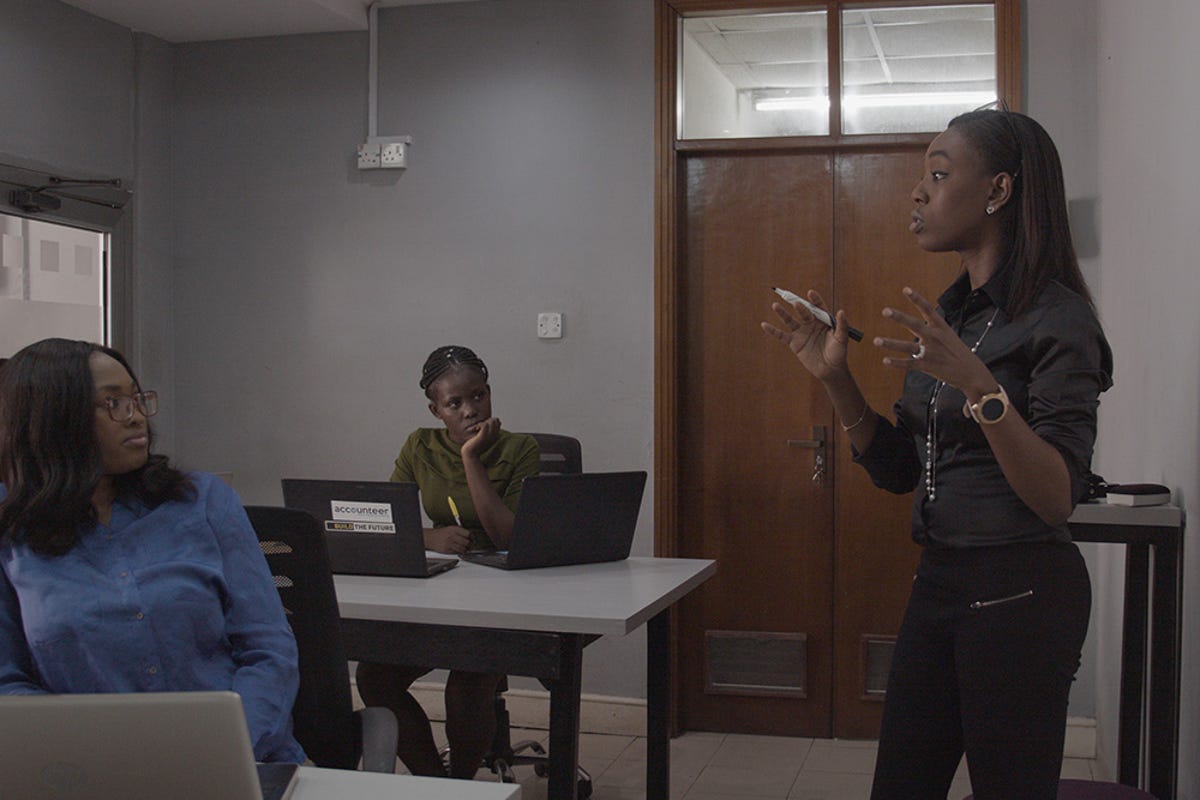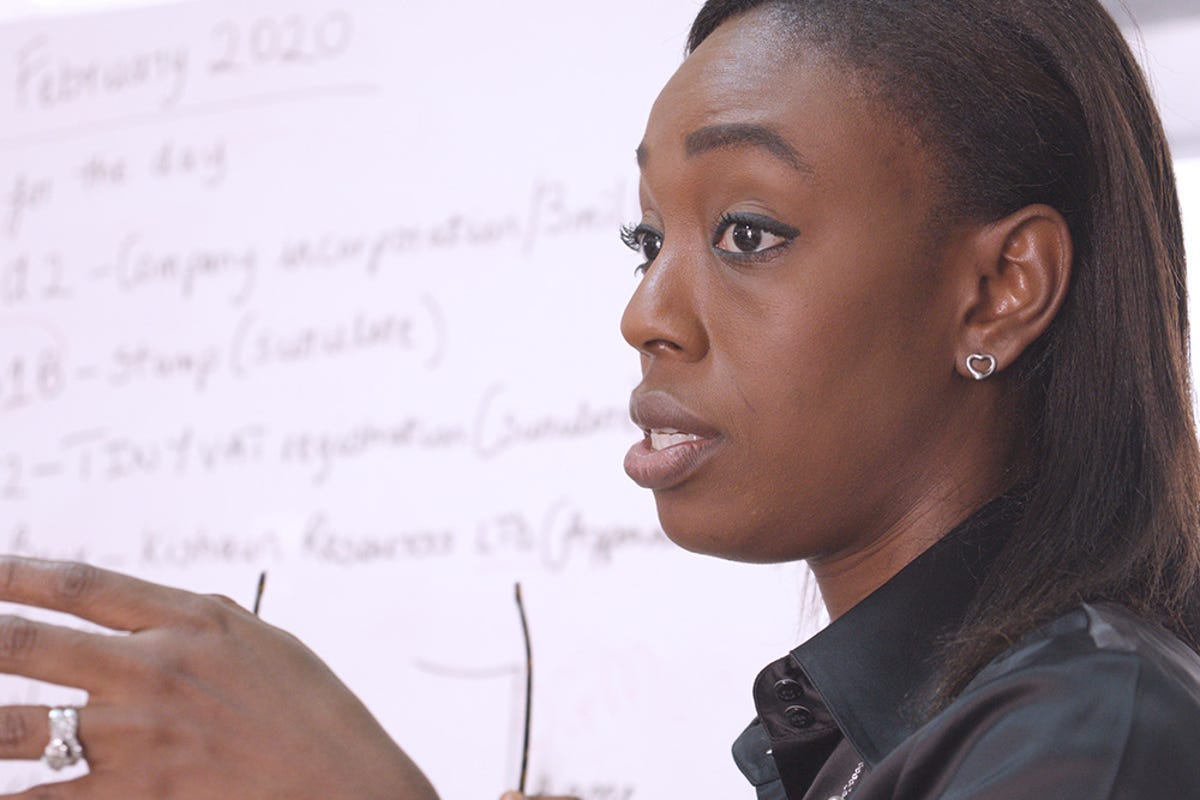Fellow Portrait
Funkola Odeleye
DIYLaw
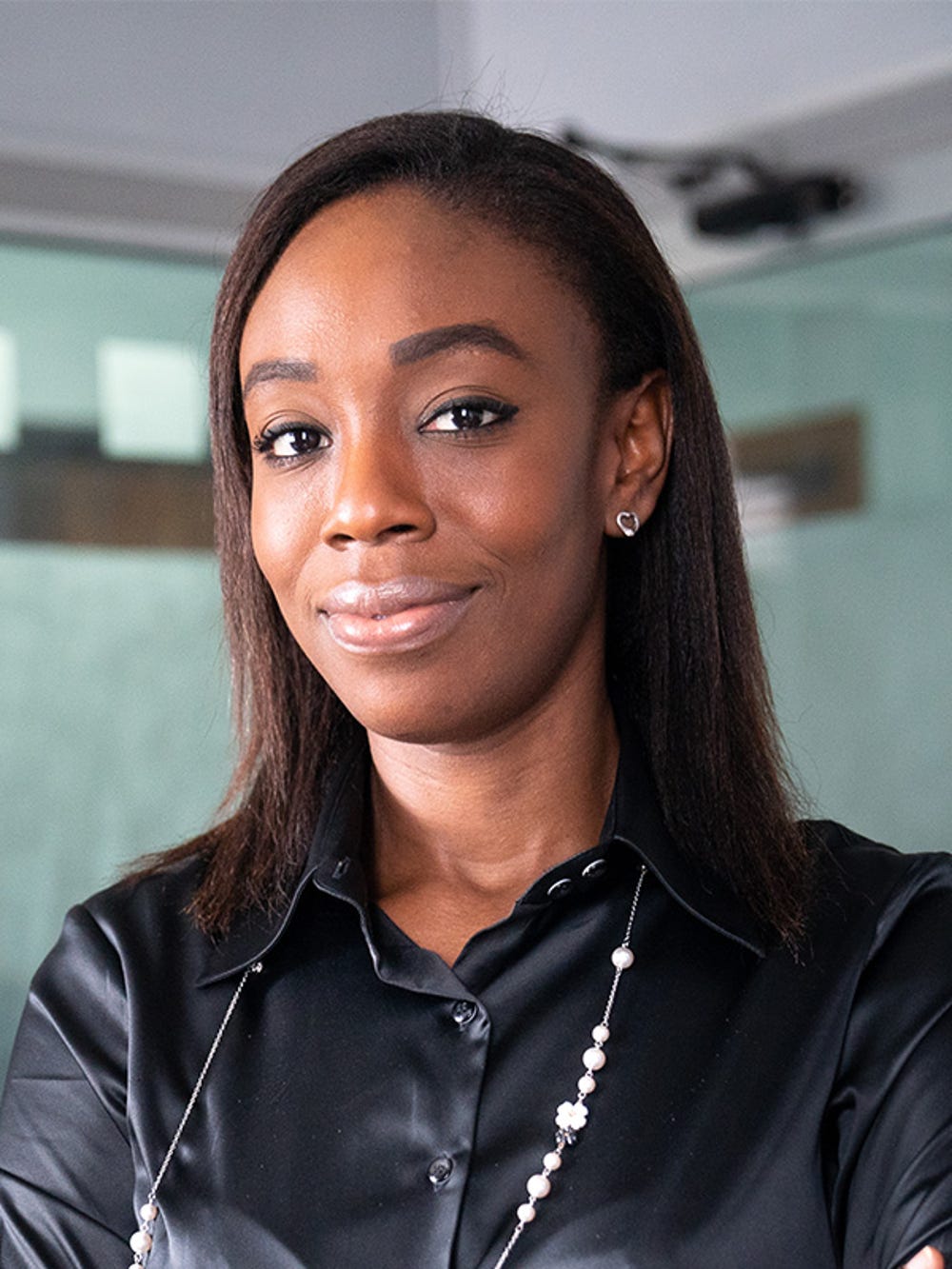
DIYLaw empowers entrepreneurs in Nigeria by providing automated online access to affordable legal services and resources.
Anglophone and Lusophone Africa
Nigeria
Fellow
2020
Updated March 2020
Youth Should Not Be a Time of Despair
Youth is supposed to be a time of optimism. All of life lies ahead, with hope of joining society as a productive employee.
But for millions of Nigerians between 15 and 24, chances of finding employment are slim. Unemployment is rising and youth account for 60 percent of the unemployed. Entrepreneurship is often the only viable solution, but this path is fraught with challenges. Red tape is rampant. Legally registering a business may involve interactions with as many as 12 agencies and organizations, including accounting firms, banks, and lawyers. The process can be particularly difficult for small businesses without legal or business staff.
It’s a waste of people’s youth when they can’t find jobs. We want to reduce the number of unemployed.

Untangling Red Tape and Offering a Path to a Productive Future
DIYLaw makes it easier for entrepreneurs to start businesses by providing a single source for legal and business support services. For a modest sum, entrepreneurs have online access to legal services and resources, including registration documents, a tax identification number, and an official stamp—all critical pieces of documentation that otherwise can take weeks or months to obtain.
Funkola Odeleye started DIYLaw in 2015 with two cofounders. “So many people are financially dependent,” Funkola says. “They don’t have a livelihood. This is a terrible waste of a vibrant group of people.” Automating legal services online means that aspiring entrepreneurs don’t have to search for a lawyer, travel great distances, and wait for the office to open. They can go on the platform anytime, from anywhere.
“We make it possible to solve basic legal problems without having to pay a lot in legal consultation,” Funkola says. And the company provides much more than registrations and documents. “We also have free resources. We have taken legal topics like business compliance and given people everything they need to know in short presentations. We have interviews with lawyers—'speed lawyering’—where a lawyer answers a single question in a video.”
The company has gone further to make things easy for its customers. When a multinational delivery company had difficulty fulfilling delivery and pickup requests, DIYLaw set up its own courier department. “Now we have motor bikes and dispatch people to do deliveries, which makes it easier to fulfill customer orders.”
We want to help reduce unemployment by 50 percent by 2030.
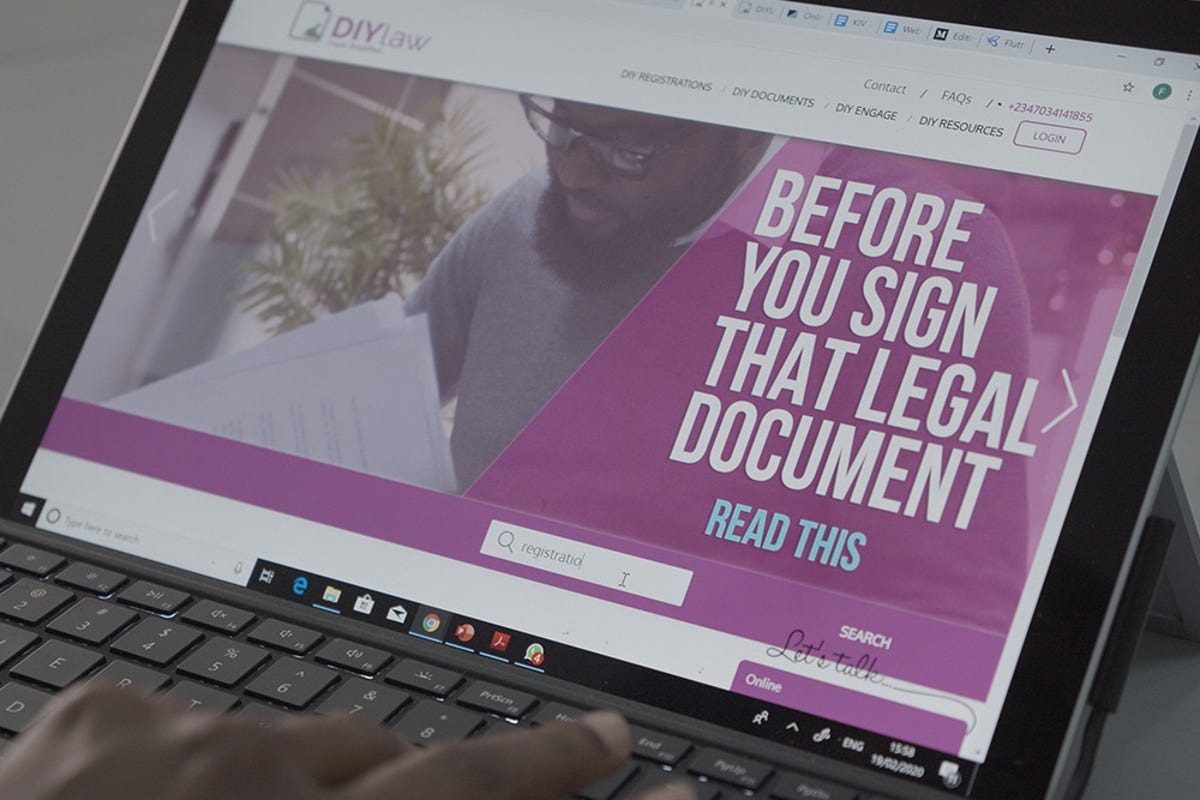
Spreading the Wealth
Funkola experienced the ripple effect of enabling more people to start businesses soon after she got her first job. In Nigeria, it is customary to give the salary from your first job to your elders to help younger family members. “I gave my first salary to my mom and received many calls from extended family members who benefitted from it. I realized how this money went on to help many people … I thought, what if there were many more people doing this—what a big impact that would have. If this could happen month in and month out for many families, so many people could prosper.”
“Already, we have improved the lives of a lot of youth in Nigeria,” Funkola says. At the end of 2019, DIYLaw’s services and partnerships had created more than 120,000 jobs in Nigeria. Every job increases an individual’s financial independence, provides a chance for stability, and in some cases even offers the possibility of moving off the streets.
DIYLaw has big goals. “We want to help reduce unemployment by 50 percent by 2030,” Funkola says. She hopes the businesses that have started as a result of DIYLaw’s efforts in the last four years will in turn create even more jobs, and she is looking for partners who align with DIYLaw’s mission to multiply its effects. Until then, she says, “We’re happy to be supporting the entrepreneurial ecosystem in Nigeria in our own small way.”
I gave my first salary to my mom and received many calls from extended family who benefitted from it. I realized how this money went on to help many people.
